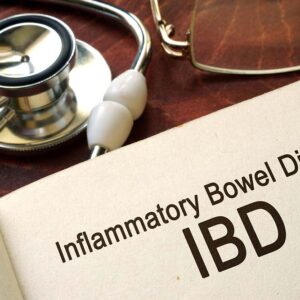
Could THIS Key Nutrient Help in the Fight Against Severe COVID-19 Infections?
When it comes to COVID-19, priority number one is avoiding it in the first place.
But if you do end up getting it, your next priority is to help it from becoming severe.
After all, some people can have it with NO symptoms, and others end up in the ICU.
Why is it so mild for some people, and so severe for others?
Researchers believe they have found a potential missing link— which could help in your fight against a possibly worse infection.
There’s a lot that can go wrong with COVID-19.
The two most serious outcomes in these patients are lung damage and blood clots (thromboembolism).
But why does a lung infection progress to systemic blood clotting issues in some patients?
The missing link could be in vitamin K.
Vitamin K helps regulate blood clotting in your body in many important ways: First, by activating both pro- and anti-clotting factors in your liver, and also by activating a protein that helps prevent blood clots.
Previous studies have shown that a vitamin K deficiency can be misdiagnosed as intravascular coagulation (which happens when blood clots form throughout your bloodstream).
Now, a recent study has shown that a deficiency in a protein that’s dependent on vitamin K increases the risk of blood clotting and lung damage—essentially leaving your lungs unprotected.
Given the clear connection between vitamin K, blood clotting, and COVID-19, the researchers called for studies evaluating the use of vitamin K supplementation to help prevent the progression to severe COVID-19.
In the meantime, you can make sure you’re getting plenty of vitamin K by eating lots of green leafy vegetables like spinach and kale, other vegetables like broccoli and cauliflower—and also fish, meat, and eggs.
Written By Dr. Richard Gerhauser, M.D.
For years he’s been the trusted doctor for celebrities, world-class athletes, and countless seniors looking to reclaim their health.
And now…for the first time ever… he’s making his medical breakthroughs available to readers all across America.
Dr. Richard Gerhauser, M.D. is one of the most pioneering and innovative minds in medicine today – and he delivers cutting-edge cures each month through his Natural Health Response newsletter.
Natural Health Response readers get full access to Dr. Gerhauser’s protocols for chronic pain… heart disease… diabetes… Alzheimer’s… and even cancer. These are the very same treatments Dr. Gerhauser recommends to his own patients at his practice in Tucson, Arizona.
In addition to being a board-certified medical doctor, Dr. Gerhauser has earned two master’s degrees and has served as a clinical professor at the University of Arizona.
And as a physician at the world-famous Canyon Ranch, Dr. Gerhauser treated celebrities from around the world who paid dearly for the type of next-generation health information he provides Natural Health Response readers each month.
View More Free Articles
Target the TRUE Cause of Dry Eyes
Cases of dry eye syndrome are skyrocketing. Approximately 20 million folks in the USA alone battle the condition. And that number is rapidly growing among young and older adults alike. That means if you’re not already battling dry eyes—and you’re one of the thousands constantly reaching for artificial tears because your body isn’t producing enough […]
Take A STAND Against High Blood Pressure [EASY!]
Often, what you DON’T do is just as important as what you DO for your health. For example, not smoking, not eating processed food, and not exposing yourself to blue light at night will go a long way toward helping you live a longer, healthier life. The same is true for your blood pressure. Research […]
Fall Asleep FAST and Stay Asleep LONGER
If you’re dealing with a sleep problem, chances are good that you’re dealing with lifestyle problems. Insomnia is typically a telltale sign of circadian rhythm disruption (not enough morning sun, too much blue light from TV at night), stress, too much caffeine late in the day, long daytime naps, etc. You get the picture. But […]
Dietary Trigger for IBD REVEALED
Cases of irritable bowel diseases (IBD)—like ulcerative colitis and Crohn’s disease—have skyrocketed in recent years… especially in industrialized nations. What is it about our modern society that increases the risk and severity of these inflammatory diseases? Scientists still don’t know the cause, but in my opinion, you don’t need to look any further than the […]
5 NATURAL Supplements to Boost Your Mood
Research has revealed MANY things that can boost your mood, including exercise, sleep, spending time with pets, listening to music, and keeping a gratitude journal. But can a better mood come in a bottle? More specifically, a supplement bottle? Scientists say, “YES!” In fact, research has revealed FIVE natural mood-boosting supplements that are proven to […]
Popular Pain Reliever BAD for Your Heart?!
Last week, I explained that mainstream medicine’s options for pain relief always come with a catch. Today, I will reveal a prime example of that “catch.” It turns out that a common pain reliever that’s supposedly the “best option” for people with heart disease might not be as safe as you’ve been led to believe. […]
Food Sensitivities Trigger Mysterious Symptoms
What do joint pain, skin rashes, headaches, and brain fog all have in common? They can all be caused by food sensitivities. Identifying problem foods—and eliminating them from your diet—can improve chronic symptoms ranging from migraine headaches and joint pain to skin rashes, brain fog, and even fatigue and fibromyalgia. The only problem? Most people—and […]
Forbidden Drink SLASHES Colon Cancer Risk 32%
A few weeks ago, I highlighted the alarming increase in colon cancer in people under 55. And I shared the results of a recent study showing that obesity is a key factor driving colorectal cancer in younger people. Of course, thousands of us over 55 are still diagnosed with colon cancer every year. And in […]
Fight Aging at the Cellular Level
I’m an “it’s never too late” kind of guy. You’ve never taken that trip to Italy? Call a travel agent. You’ve always wanted to learn German? Look up Rosetta Stone. Salsa dancing has always looked like fun? Sign up for lessons. And, as it turns out, it’s also never too late to fight back against […]
REAL Relief for Late-Stage MS Symptoms
If you have multiple sclerosis (MS), some days it can feel like you have nowhere to go but down. As the condition progresses, symptoms like poor balance, tingling and burning nerve pain, and slurred speech can worsen. And as hopeless as it can feel, it’s never too late to take steps that can have a […]










